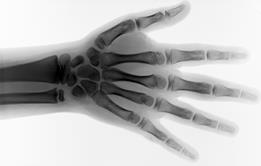Credentialing has huge benefits for the NHS, but only if hospitals adopt solutions bespoke to their specific needs

Jeremy Hunt recently called for a fresh commitment to simple measures to improve patient safety in the NHS.
Few could be simpler than ‘credentialing’: the process of obtaining, checking and assessing the qualifications of healthcare industry representatives to ensure compliance with hospital access and safety policies.
- Technology: The big question
- Stephen Kennedy: The inefficiency of the one size fits all approach to MRIs
- Technology case studies: ‘Patients really like it’
- Patient safety: The UK’s first ‘credentialing’ system
- Technology: Its image problem and what we can learn abroad
- Download a PDF of the HSJ efficiency supplement for free
Safeguarding systems
In the US, impartial and independent credentialing is commonplace.
Over 6,000 healthcare providers use IntelliCentrics’ Reptrax system to know which reps are on site at any one time, what they are doing, and that they have area appropriate health and professional certifications - from immunisations to training qualifications.
Credentialing systems safeguard patients by controlling access to sensitive areas, and improving infection control.
They also help procurement by making it harder for healthcare industry representatives to circumnavigate central buying policies through unscheduled visits to individual clinicians.
Until now, this process has been neither requirement nor habit in the UK. That’s about to change, with Leeds Hospitals leading the way.
‘Credentialing systems safeguard patients by controlling access to sensitive areas, and improving infection control’
But what should trusts be mindful of when deciding on a credentialing system?
Proven track record is a given. Well established service elements and data governance structures need to be in place. In this respect, credentialing should be a core competency of any provider being considered, rather than a “one of many” service.
Also, while credentialing systems will typically be free of charge to hospitals (with vendor companies paying annual subscriptions), it is important to check other resource requirements.
Credible services will take on the administrative burden of data input and service rollout. It’s also worth checking that confirmation of a healthcare industry rep’s compliance is truly automated and reported in real time at point of entry.
‘Credentialing systems will typically be free of charge to hospitals’
Ultimate control of the system, however, should always sit with the hospital.
Trusts also need to consider flexibility. It’s no good introducing a system that can only safeguard blanket policies when it is likely that specific hospital departments or areas have differing needs.
Linked to this is scalability - it’s worth checking how easily new areas, entrances or sites can be added to the system.
Ultimately, however, a system needs to be the right fit. I believe credentialing has huge benefits for the NHS, but only if hospitals adopt solutions bespoke to their specific needs.
Azadar Shah is managing director of IntelliCentrics in the UK
HSJ efficiency supplement: Yes we scan, the case for smaller MRI scanners

This HSJ supplement explores the changing views toward MRI scanners and why the new generation of ‘compact’ scanners is showing benefits for patients, staff and suppliers.
- 1
 Currently
reading
Currently
reading
Azadar Shah: Safeguarding patients using credentialing system
- 3
- 4
- 5
- 6
- 7







































No comments yet